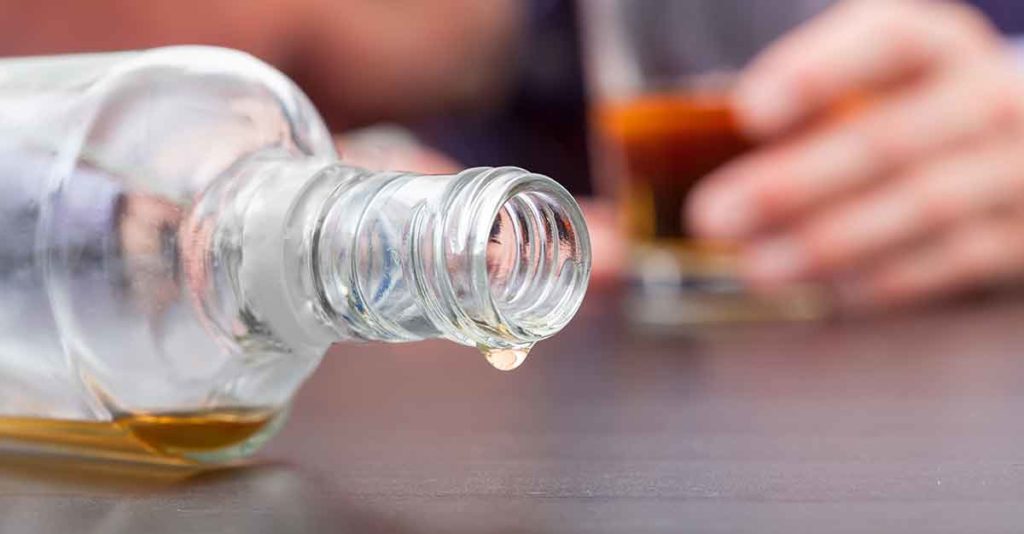Alcohol withdrawal is one of the most difficult, and most dangerous, withdrawals that the human body can go through. Not only is it physically taxing, but the psychological effects are also quite severe.
If you, or someone you care about, are experiencing a physical dependency to alcohol then you may be considering what an alcohol withdrawal will be like. Knowing more about what helps with alcohol withdrawal can keep you, and your loved ones safe.

Alcohol withdrawal describes the experience an individual has when they stop drinking alcohol once their body has developed a physical dependency. This happens because over time the brain adapts to the constant intake of alcohol and adjusts its neurotransmitter activity levels to compensate. When that alcohol intake suddenly stops the brain does not have time to reactivate ‘normally’, leading to many unpleasant or dangerous withdrawal symptoms.
Some of the typical alcohol withdrawal symptoms include:
These symptoms are all attempts by the body to adjust to the absence of alcohol and alcohol’s effects on the central nervous system.
Yes, alcohol withdrawal is extremely dangerous, and can even be fatal. It is one of the most dangerous substances to detox from, despite being an extremely accessible drug in most countries.
Abruptly stopping alcohol consumption, or even weaning off too rapidly, puts immense pressure on the body leading to heart, respiratory, and neurological complications. While there are some drugs who do not have a dangerous physical withdrawal process (like marijuana for example), alcohol detox can be deadly.
Alcohol is classed as a ‘depressant’ drug. This is not because it makes you depressed, although it can contribute to that, but because it depresses the responses of the central nervous system.
That means that it essentially slows down messages between your brain and your body. This results in symptoms from drinking such as slowed heartbeat, low blood pressure, slurring of words, cognitive delays, stumbling when walking, dropping items, and more.
Alcohol enhances the effects of GABA (gamma-aminobutyric acid) which is an inhibitory neurotransmitter, creating the sedative effects of alcohol as explained above. It also suppresses glutamate, which is an excitatory neurotransmitter, also contributing to the sedative effects.
As alcohol use continues chronically at high levels, the brain begins to compensate for this dual effect in an attempt to combat alcohol’s effects and function at a ‘normal’ level. However, with sudden cessation of alcohol there is an overexcitation of the nervous system.
This is why many of the withdrawal symptoms are the opposite of what is experienced under the influence – an increase in heart rate, agitation, trouble falling asleep, etcetera. With extreme alcohol use, comes an extreme imbalance in neurotransmitters, and therefore an extreme experience in withdrawal.

The safest way to detox from alcohol is to complete a medically assisted detox in an inpatient setting with 24/7 medical supervision. This could take place either in a hospital, private clinic, or dedicated detoxification facility.
When considering your options, it is important to keep in mind that even reducing your alcohol intake can be dangerous, depending on how much you drink per day. Some clinics may even recommend that you continue drinking (also called ‘maintenance drinking’) until you come into the clinic in order to avoid potential risks.
The best clinics will be able to admit you as soon as possible in order to complete assessments and provide medical support in reducing your suffering during withdrawal. We talk more about the process of what happens during an in-patient detox further below.
Wherever you complete your detox, the first step must be a complete alcohol and other drug assessment to determine your total intake and therefore assessing the severity of your withdrawals. This will also help inform the psychiatrist as to what medications and treatments are best advised in protecting your life and alleviating withdrawal symptoms.
It is never recommended for someone who suspects they may have an alcohol dependency to attempt a detox in their home. This is particularly true for those who wish to stop “cold-turkey”.
When detoxing within your home you do not have access to medical care should an urgent event befall you (such as a heart attack). In addition to this, there is no ongoing supervision to ensure that you are eating sufficiently, drinking enough water, keeping your temperature down, etcetera.
Some out-patient medical clinics may assess you as consuming a sufficiently small amount of alcohol to be able to wean and detox at home. In this instance, they are still providing medical supervision and will keep a close eye to ensure you are following all guidelines. However this is not a recommended course of action for the vast majority of people dependent on alcohol.
Please do not take anecdotal advice from people who say “I did it, and I was fine” or “You’re at home, you just have to ride it out”. Alcohol withdrawal and detox can be fatal – you must consult with a medical professional before attempting even to wean off of alcohol.
The largest benefit to detoxing from alcohol at a private rehab clinic is that you can ensure you are as safe and comfortable as possible while undergoing an incredibly challenging time. The overall process of detoxing at a private clinic looks similar to this:
If you are interested in ensuring you can complete your alcohol detox in privacy, safety, and comfort, then Clinic Les Alpes is able to help. With 24/7 medical supervision in luxury accommodation, you can access daily therapeutic interventions and a medicalised spa to ensure that you start your road to recovery on the right foot. For more information, please do not hesitate to contact us.
As outlined above, alcohol withdrawal and detox is incredibly complex and dangerous from a medical perspective. When suffering from the effects of long-term alcohol use on the brain, the body is poorly equipped to ‘bounce back’ and recover its ‘normal’ function.
In seeking out information about alcohol withdrawal, you may be hoping to help yourself or someone you care about undergo detox as painlessly as possible. Ultimately, the best advice for what helps with alcohol withdrawal is professional medical supervision, even if only for a consultation.